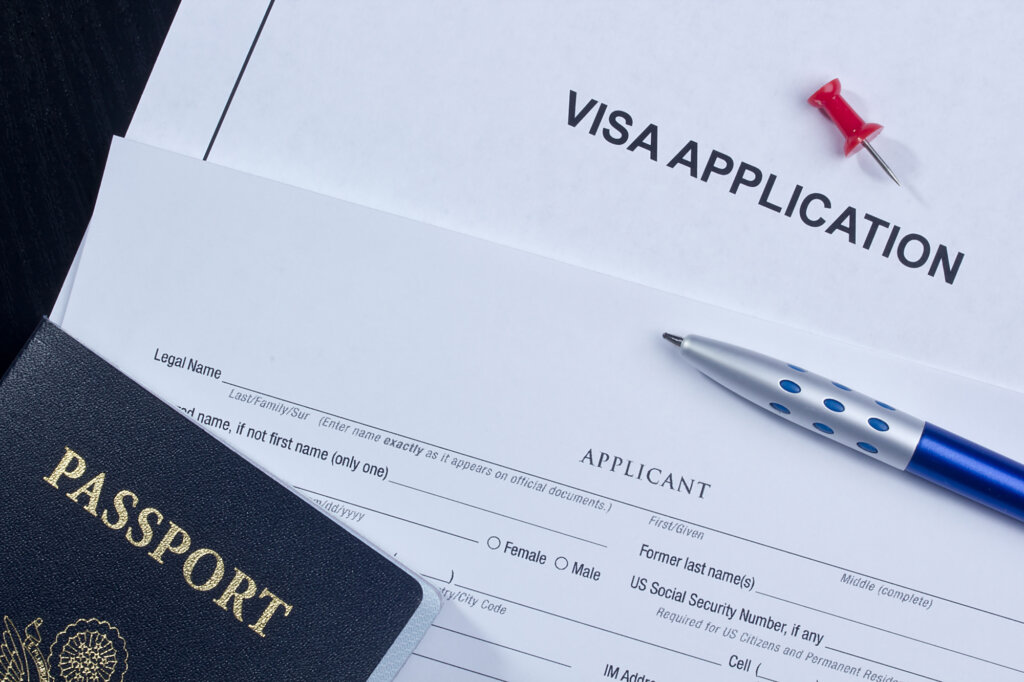
One of the most daunting parts of studying in the UK as an international student can be the visa application process. Visas are required by international students, including nationals of the European Economic Area (EEA) and Switzerland, to study in the UK for more than six months. The visa you’ll need depends on the specific course and its length. For courses less than one year, but more than six months, students can apply for a short-term student visa and for courses less than six months, students can apply for a visitor visa. Any course over a year long requires a student visa.
You can apply for a student visa from inside or outside the UK, but the timing differs depending on where you’re applying from. If you’re outside the UK, you can apply up to six months before your course begins, whereas if you’re inside the UK, you can apply up to three months before the course begins, but it needs to be before your current visa expires.
There is plenty of guidance online for students applying for visas, but as immigration laws frequently change, consult the UK government website or an immigration lawyer before applying for the latest information
Visa Application Process
Credibility Interview
One of the newer parts of the student visa application process is the credibility interview. The purpose of the interview is to make sure that only genuine students are applying and that the students are capable of the course they’re planning to attend. The credibility interview only lasts about 10 to 15 minutes, and students will be asked a variety of questions to determine the legitimacy of their application. There are personal questions such as why you want to come to the UK to study, why you chose the UK, if there were other universities you considered or applied to, what you plan to do after graduation and how you’re funding your studies. Students can also be asked questions about their specific university and course, such as where the school is located and what qualification you’ll earn to ensure you know what to expect and what course you’re attending.
Financial Advice
Another aspect of the visa application process is proving that you have the funds to cover the costs associated with your course. First, you’ll need to show that you have the money to pay for one academic year of your course, although this requirement is waived if you’ve been in the UK for at least one year prior to starting your course. Additionally, many students are also required to show that they have the funds to support themselves outside of their course. This means having a set amount each month to cover accommodation, food and any other costs you may have. A list of countries not required to meet this second requirement can be found on the UK government’s website.
When applying for a student visa, there are a number of other things to consider based on your situation and course.
ATAS
The Academic Technology Approval Scheme, or ATAS, is an additional certificate that some students studying or researching sensitive subjects such as weapons of mass destruction or advanced conventional military technology need to enter the UK. Students studying these sensitive subjects who are nationals of EU countries, the EEA, Switzerland, Australia, Canada, Japan, New Zealand, Singapore, South Korea and the United States don’t need an ATAS certificate.
Asylum Seekers
If you’re an asylum seeker, make sure you understand how your status affects your ability to cover the cost of your course. The UK government provides a number of supports for asylum seekers and their families, but these supports do not cover university-level education.
Bringing Dependents to the UK
If you want to bring dependents such as your spouse, partner, or children with you when you come to study in the UK, they will need their own dependent visas in order to enter the country. Not all student visas can have dependents, but postgraduate students enrolled in courses longer than nine months can. It’s important to note this does add additional requirements, including financial requirements, to the visa application.
Graduate Visa
Recently, the UK government introduced a graduate visa that allows international students to stay and work in the UK for two to three years after graduating, depending on their degree. Students can apply once they know they’ve successfully completed their course, but the application needs to be in before their student visa expires. This visa can’t be extended, but you could apply for a skilled worker visa after the two or three years is up.

